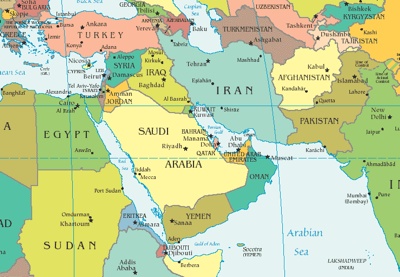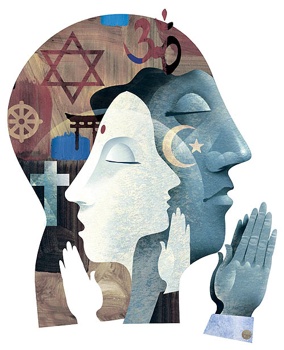 Crime
Crime  Crime
Crime  Technology
Technology 10 Hilariously Over-Engineered Solutions to Simple Problems
 Miscellaneous
Miscellaneous 10 Ironic News Stories Straight out of an Alanis Morissette Song
 Politics
Politics 10 Lesser-Known Far-Right Groups of the 21st Century
 History
History Ten Revealing Facts about Daily Domestic Life in the Old West
 Weird Stuff
Weird Stuff 10 Everyday Products Surprisingly Made by Inmates
 Movies and TV
Movies and TV 10 Actors Dragged out of Retirement for One Key Role
 Creepy
Creepy 10 Lesser-Known Shapeshifter Legends from Around the World
 Animals
Animals 10 Amazing Animal Tales from the Ancient World
 Gaming
Gaming 10 Game Characters Everyone Hated Playing
 Crime
Crime 10 Terrifying Serial Killers from Centuries Ago
 Technology
Technology 10 Hilariously Over-Engineered Solutions to Simple Problems
 Miscellaneous
Miscellaneous 10 Ironic News Stories Straight out of an Alanis Morissette Song
Who's Behind Listverse?

Jamie Frater
Head Editor
Jamie founded Listverse due to an insatiable desire to share fascinating, obscure, and bizarre facts. He has been a guest speaker on numerous national radio and television stations and is a five time published author.
More About Us Politics
Politics 10 Lesser-Known Far-Right Groups of the 21st Century
 History
History Ten Revealing Facts about Daily Domestic Life in the Old West
 Weird Stuff
Weird Stuff 10 Everyday Products Surprisingly Made by Inmates
 Movies and TV
Movies and TV 10 Actors Dragged out of Retirement for One Key Role
 Creepy
Creepy 10 Lesser-Known Shapeshifter Legends from Around the World
 Animals
Animals 10 Amazing Animal Tales from the Ancient World
 Gaming
Gaming 10 Game Characters Everyone Hated Playing
Top 10 Things You Should Never Discuss Online
The late comedian George Carlin made a good living on his famous “Seven Words You Can Never Say on Television” monologue. In the monologue, he details seven particular words that one could never use on television (or radio either) regardless of intent or context. Use of any of those seven words would (and will) get you bleeped out. Use of enough of them at one sitting and the FCC (in America) will have you up on fines or worse.
Well, Mr. Carlin’s seven dirty words won’t usually cause an eye blink on the Internet; however, some topics are tacitly taboo regardless of the site one is surfing or the point one is trying to make. The introduction of any of these verboten topics into a comment stream, blog post, or general web discussion will invariably result in the immediate cessation of whatever was being discussed and the explosion of a full fledged flame war. These particular topics are so incendiary because they have little or no perceivable middle ground. One must chose a side and any refusal to chose a side will usually result in taking fire from BOTH sides.
Pretty much all of these topics have been around for years, but none of them show the slightest sign of becoming any less inflammatory. If anything, the rapidity of communication available via the web has polarized these issues even more. They are all grenades and a wise man once said, “when the pin is pulled, Mr. Grenade is not our friend.” So, without further ado and with apologies to the late Mr. Carlin, Ten Topics You Cannot Discuss on the Internet (without serious drama following shortly thereafter).
Everyone has an opinion about the Middle East. It may be about the Palestinian State; it may be about oil; it may be about Israel; but that little area of land is blood-soaked for a reason. Trying to talk about the Middle East will almost always end up in a fight because no one has been able to come up with a win-win solution to the area’s problems in a few thousand years. Any solution requires one side or the other to give ground and so far, no one has decided to. This mentality carries over into the supporters of the different positions. Israel is evil. The Palestinians are evil. The Jews are evil. The Arabs are evil. Round and round it goes. Again, no middle ground.
Can’t be discussed rationally. No way, no how. To some it’s a perfectly acceptable lifestyle. To others, it is anathema. It is genetic. It is a choice. It can be “cured”. Once a homosexual, always a homosexual. Nature – or nurture. What’s really upsetting is no middle ground is usually available. If one happens to be a live and let live type of person, he or she is still in some danger of being painted negatively by the other side. One thing that makes this particular topic so explosive is homosexuality is much more mainstream now than it used to be. To some, that is a positive and sought after development. For others, it is a sign that the apocalypse is at hand.
Arguably the most discussed man in all of history. His life traditionally splits the dating system of the Western World into BC and AD. He is also probably the single most divisive person in all history. He was a good man and a great teacher but nothing else. He was God in the flesh. He never existed. Strangely, many people of all stripes who can rationally and calmly discuss the existence of God devolve into name calling and mudslinging once Jesus is brought up. Jesus is another guaranteed firestorm starter.
“Can’t we all just get along?” isn’t really an option. Things are better than in the past in some instances, but in others, not so much. Regardless, trying to talk about it reasonably is nearly impossible. Moderate voices are usually shouted down. Even in the 21st century some people still believe in the superiority of one race over another, despite the fact that, organically, race is a myth. We have ethnicities, yes, but race is an artificial construct based almost solely on the amount of melanin in a person’s skin and the size and layout of the facial bones and musculature. We’ve come a long way, but a long way remains and to discuss it reasonably is difficult. Cries of discrimination start coming in from all sides and before anyone knows it, the “discussion” is in the crapper.
Pro-Choice. Pro-Life. Anti-choice. Baby. Fetus. When does birth begin? I have read more than once that civil debate on abortion is difficult in person and absolutely impossible online. The reasons are plain. It’s a topic that is naturally polarizing. It pits men against women, one religion against another, freedom against bondage, and for some it is literally a matter of life and death. The most divisive facet of the abortion debate, however, is the tendency for both sides to apply black and white thinking to a subject with way too many gray questions to fit into those pigeonholes. The result in “real life” can be crazy mad protests all the way up to clinic bombings. Online isn’t much better as otherwise nice, civil, rational people go from zero to pissed off in less than a second. Too visceral. Avoid at all costs.
This is mostly an issue for Americans and there is a certain amount of politics involved, but even those who live in countries with very strict gun control, or no gun control (and little concern about it) are sure to weigh in on this controversial topic. It is, of course, all the more controversial for Americans because it goes to the very core of the nation – the constitution and the right (or not) to bear arms. We have already had at least one incident of comment war over this topic.
The Holocaust is ALWAYS a fire starter. It never happened. It happened but the numbers are inflated. It happened but why is it so important. The Holocaust is about the Jews. The Holocaust is about all the targeted populations of the Nazis. The Holocaust didn’t get the job done. One reason this topic is so toxic is enough people are around who were eyewitnesses to make a strong case one way, but enough people are around who must rely on second hand information to be subject to influence by deniers. Either way, almost NOTHING elicits the strong feelings that the Holocaust does, and if one makes the mistake of saying one doesn’t care either way, well, god help you.
Of all the topics on this list, politics is the one that seems to have shown the most recent increase in rancor (though not on Listverse – item 6 takes the cake there). In the US we have the Republicans and Democrats, and in many other countries (such as the UK and most of the Commonwealth there is a similar variation of partisan political parties. For the diehard political pundit, his party is his team. It’s his family. It’s a mountain he’s ready to die on. I’ve seen people get physically sick upon learning “their” candidate had lost an election. The saddest part of this polarization is the gridlock it creates in governments. After all, the politicians know about the splits and they’ll pull out all the stops to add to their camp so they can stay in office.
Evolution or Creation? The books that have been written on this subject for either position could probably fill a modest library. Each side has reams of data and boatloads of facts to back up its position and each side roundly thinks the other side’s data and facts are so much excrement. The worst part is, again, no middle ground. If one tries to adopt a position that incorporates both sides, each side will rip him or her to shreds. When the origins of man come up, the gloves come off.
More people have died in the name of God, whatever name that may be, than pretty much all other causes combined. Christian. Muslim. Buddhist. Atheist. Scientologist. No matter the stripe, a surefire way to get EVERYONE mad is to disparage another’s religion or lack thereof. It’s simple, really. Religion or, spirituality if you will, is probably the most intensely personal part of anyone’s being and that includes those who reject religion and spirituality altogether. Also, religion is a family affair. When someone feels his religion is under attack, that attack immediately becomes personal and familial. One push leads to a counter push and the atomic explosion goes off. To make matters worse, some religions have as an integral part a command to proselytize. Also, some people, not from a sense of command, but of desire, will want to proselytize. When that happens, your intensely personal experience collides with another person’s intensely personal experience and the result is a perfect storm of firestorm.
So, there it is. The ten topics you cannot discuss online (without serious drama following shortly thereafter). A word for the wise: it might pay to discuss the reasons behind this inability to discuss certain topics without a war, rather than discussing the merits of the items mentioned specifically. Let’s keep this more civil than the last list that mentioned one of the topics here.


















